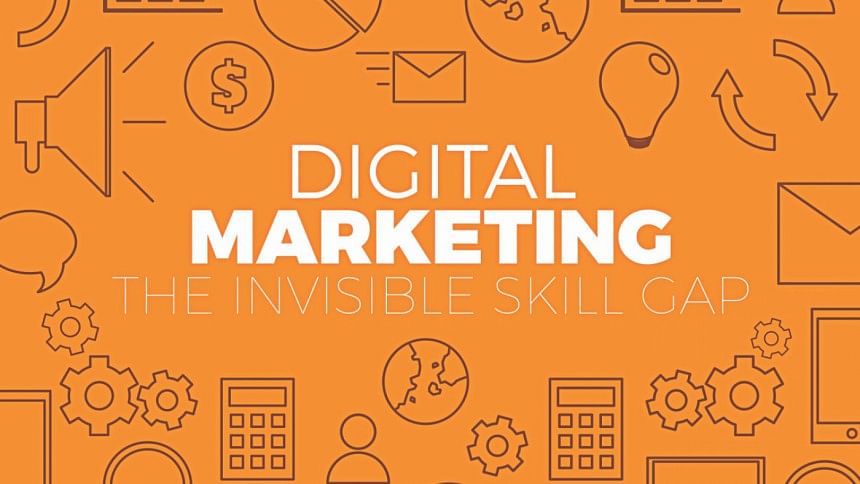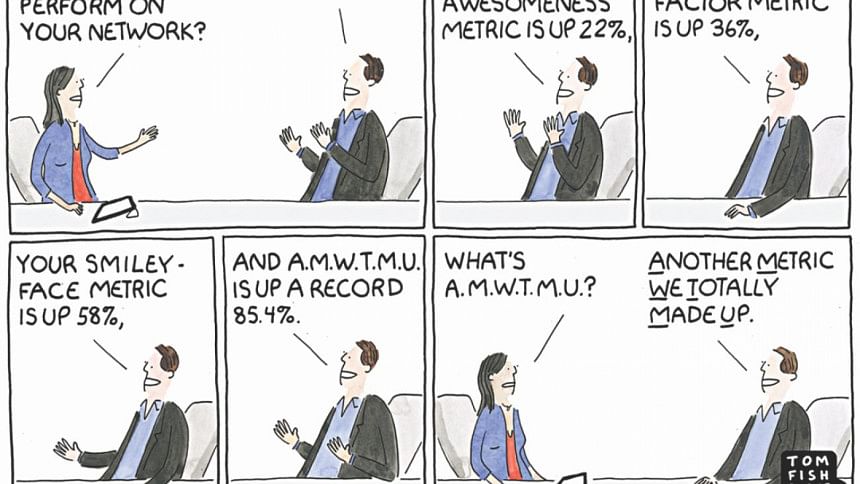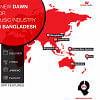Digital Marketing - The Invisible Skills Gap


Regardless of the current generation's various woes, no one can deny that we are a privileged generation. What we have in the palm of our hands today is more information than our ancestors could gather in their entire lifetimes. If we don't utilise our privileges to their fullest, or are not given the opportunity to do so, we are wasting precious opportunities that previous generations would kill to have.
As of January 2018, according to the Bangladesh Telecommunication Regulatory Commission (BTRC), 80 million people in Bangladesh are using the internet. Companies with sufficient foresight into the future have realised that an online platform can reach a much larger number of people, in a much shorter time span, with much higher cost efficiency. They've realised that consumer reliance on the web has enormous business potential, and thus they attempt to exploit this phenomenon by investing in strong digital marketing campaigns.
However, when companies try to hire people with the sufficient digital marketing skills, they often find themselves facing a skills gap. Where are the digital marketing majors to the rescue? Alas, our academic institutions don't seem to have noticed this increasing cry for people with digital marketing as their primary skill or specialisation.

Radia*, a third-year Marketing major from North South University (NSU), reports that among the roughly 130 credits in her curriculum, a mere 3 credits are dedicated to a mandatory course that focuses solely on digital marketing. And yet, this is still more than what we find in several other institutions in the country. She further states that the course has only been made available since last year, and the teachers, while trying their best, seem yet unsure of how to approach the subject. Despite that fact, she assures us that the course was highly beneficial, and effectively incremented her knowledge of online marketing, especially in the sectors of spatial and time management of ad placement, content creation, data analysis, and SEO. When asked whether she believed an option to major in digital marketing was needed in universities, she responded with "Digital marketing cannot be a standalone major as of yet, however, we most definitely need more such courses."
Although digital marketing along with related subjects are well-established majors in multiple universities all over the globe, this reluctance to admit that a standalone digital marketing major should be an available option is not exclusive to Radia. When asked, Mehraab Anwar, founder of digital marketing firm Scratchboard states, "I'm not sure on digital marketing getting its own major. However, not incorporating more digital marketing courses in our schools is ignorant, because we will miss the opportunity to prepare our students for the future." He believes that there are online courses and degrees that can make you quite proficient in the discipline, especially when the deciphering of click rates and data analysis comes into question, but that remains a sector only for those who are "willing to go out of their way to learn".

Preparing our students for the future is exactly the tune that Ehfaz Nowman, Lecturer, Department of Marketing and International Business at NSU, identifies with. With a focus on Consumer Behaviour in Digital Space for his Masters, and having worked in developing digital strategy for various brands at Unifox Digital Media, Nowman shares that digital marketing companies often face that skills gap when hiring employees. Frequently the employees learn on the job, and have to be provided additional in-house training. He believes that if the students were previously educated in digital marketing they would face an ease of employment in the marketing industry where there exists a growing demand for such skills.
In recent times, the absence of digital marketing in curricula seems to have produced marketing practices which have been termed "dubious". We see the marketing branches of premium brands, the recent examples of a luxury hotel and a café coming to mind, displaying prices wantonly on their products, leading to mass outcries from the general populace.

On that note, Nafi Ul Haque, Director, Cookie Jar, believes that for the hotel, "They reached out to almost everyone through social media and word of mouth. If the objective was to be on the consumers' mind through any campaign, this was definitely a good digital campaign." However, he mentions that for the café, the same policy yielded different results. He elaborates that they could not generate the same level of "word of mouth", as consumers were already exposed to the hotel's campaign. Summing the occurrences up, he goes on to mention that these promotions are like one-trick ponies because, in his words, "you can't fool someone twice with the same trick." Haque concludes that digital marketing being synonymous to "social media marketing" is the underlying cause for these issues in Bangladesh. "The reason is that there are very few people who are exposed to proper digital marketing content or have a proper degree in digital marketing," he says.
Unfortunately, the flaw is not only an issue on the employee side of the matter, but also exists on the employer's part. There are a multitude of firms in Bangladesh operating under the illusion that digital marketing consists solely of posting ads on Facebook, or at most owning a Facebook page. Cases of well-thought-out campaigns, constructed and maintained by digital marketing firms, being shunned by large brands in favour of only creating a Facebook page are utterly common. When asked about how a digital marketing firm tackles such beliefs, Anwar says that he has found that the easiest way to dispel such belief is to educate. He prefers using the example of how Google collects user data to show them relevant advertisement.

The reason behind such delusions on the part of corporations lie in our largely Facebook-centric population. However, studies into social media usage in Bangladesh have revealed that the 15 to 25-year old demographic is invariably branching out to other social media platforms such as Instagram and Twitter. Furthermore, Radia states that a website for a firm is an absolute necessity alongside its own Facebook page. She claims it adds credibility and integrity to their brand name, while allowing them to portray their brand image in a much more customisable environment. While Nowman believes that currently Bangladeshi firms spending in digital marketing on Facebook alone are not losing out on too great an audience, in a few years that may not be the case.
Slowly but surely, we will have to create digital marketers and have them educated properly in their trade. Whether we reach that point in record time, or continue our two-steps forward, one-step back routine relies solely on the ability of our institutions to adapt to global and domestic market demands, battle bureaucracy, and respond to change.

*Name has been altered to protect the privacy of the individual.
Rabita Saleh is a perfectionist/workaholic. Email feedback to this generally boring person at [email protected]










Comments